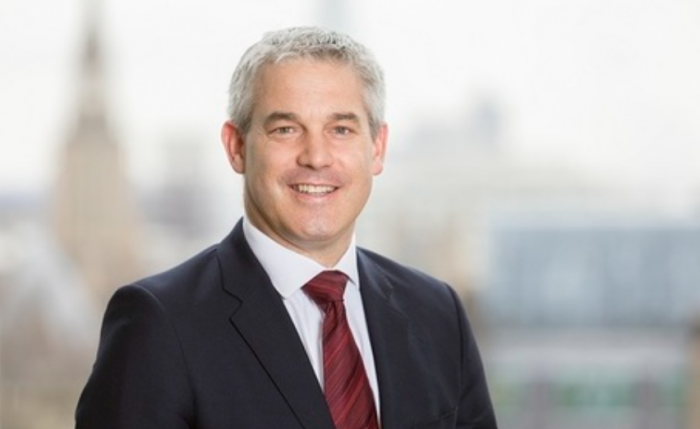Government is committing to a new £30m fund to speed up the adoption of technology in the NHS which could include new tools to detect cancer sooner.
But the Society of Radiographers warned such investment will not make up for a lack of investment in the NHS workforce.
Speaking at the Conservative Party Conference earlier today health and social care secretary Steve Barclay (pictured) revealed the fund would “enable clinicians to adopt proven technology that can improve patient care”.
He added these could include new tools to detect cancer sooner, to help people receive treatment in their own home or increase productivity to tackle waiting lists.
According to Barclay, these new projects will be delivered in this financial year.
“We’re focused on getting the very latest technology into the hands of doctors and nurses so they can benefit you when you need it,” Barclay told conference.
Cannot compensate for lack of investment in workforce
While welcoming the additional funding, Dean Rogers, director of industrial strategy for the Society of Radiographers, warned investing in technology does not compensate for a lack of investment in the NHS workforce.
“In our most recent workforce census, published in 2022, 94% of respondents said that there were vacant posts for diagnostic radiographers in their departments. Nationally, the average UK vacancy rate for radiographers is 12.7%.
“It is pointless to invest in expensive equipment while there remains a shortage of radiographers. Our members talk about MRI scanners standing unused, because they did not come with a budget for radiography professionals to deliver patient care.
“Meanwhile, our members work 60-hour weeks, day and night, to compensate for staff shortages, so as to ensure that their patients receive the best possible care.”
Rogers added it was “interesting” the the heath secretary spoke about putting more technology in the hands of doctors and nurses, but failed to mention radiographers.
“Perhaps he, too, realises that there are not enough radiographers in hospital departments,” Rogers continued.
“Mr Barclay was keen to champion the Conservatives’ long-term workforce plan, but where’s the plan to address the crisis in recruitment and retention today?
“Our members are struggling to make ends meet while the cost of living soars. The average weekly earnings for members of the Society of Radiographers have only increased by 23% since 2008 – compared with an average weekly increase of 55%. NHS graduates are now unusual among public-sector workers in having a starting salary of less than £30,000.
“This year, the majority of university courses for diagnostic radiography had to enter clearing, because of a lack of students to fill their places. Why would anyone choose to go into a profession with falling real-terms pay and poor working conditions?
“High-tech equipment will not deliver the reduction in waiting lists that our patients so desperately need and we so eagerly want. For that, the government needs to remember that what matters most in the NHS is people, not tech.
“Our members deserve better. Our patients deserve better,” Rogers concluded.
